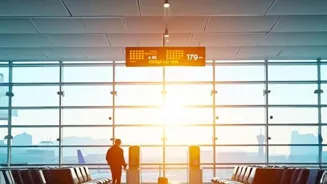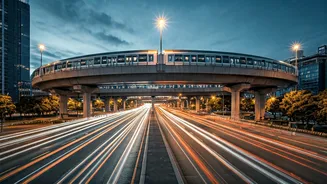Discover 10 essential tips for navigating public transportation in foreign cities as an Indian traveler. Let's delve into this insightful guide!
Venturing into a new city is exciting, but navigating its
public transportation can be a bit daunting, especially in a foreign land.
For the Indian traveller, accustomed to the familiar chaos and charm of our systems, understanding the nuances of transport in other countries is key to a smooth and enriching experience. Fear not, this guide offers ten practical tips to help you conquer any global commute.
Research is Your Best Friend
Before you even pack your bags, do a thorough study of the city's public transport system. Most cities have websites or apps providing route maps, fare information, and operating hours. Understanding the basics beforehand will prevent confusion and save valuable time upon arrival.
Look for popular options like buses, trains, trams, or subways. Some cities may even have unique transportation modes like ferries or cable cars. Knowing which options are available and how they connect will give you a significant advantage.
Don't just rely on general information; try to simulate a few journeys you might take to your hotel or popular attractions. This pre-trip research will build your confidence and allow you to navigate unfamiliar territory with ease.
Also, check for any planned disruptions or maintenance work that might affect your travel plans. Being aware of potential issues in advance allows you to make alternative arrangements and avoid unnecessary delays.
Lastly, familiarize yourself with any specific rules or regulations regarding luggage, tickets, or acceptable behavior on public transport. Being prepared is half the battle!
Grab a Local SIM Card or Portable Wi-Fi
Staying connected is crucial for accessing maps, translation apps, and real-time information. A local SIM card offers the most reliable data access, but a portable Wi-Fi device is a good alternative if you plan on visiting multiple countries.
Ensure your phone is unlocked before you leave India so it can accept a local SIM. Many airports and convenience stores sell SIM cards specifically for tourists, often with pre-paid data packages. Consider the duration of your stay and your expected data usage when choosing a plan.
With a reliable internet connection, you can easily use apps like Google Maps or Citymapper to plan your routes, track your progress, and find nearby stations or stops. You can also use translation apps to communicate with locals if you need assistance.
Having access to real-time information about delays or changes to the transport schedule is invaluable. Plus, you can stay in touch with family and friends back home, sharing your travel experiences and keeping them updated on your whereabouts.
Master the Ticket System
Understanding how to purchase tickets is essential. Many cities offer various options like single-journey tickets, day passes, weekly passes, or rechargeable travel cards. Consider your travel plans and choose the most cost-effective option.
Some cities have ticket vending machines at stations, while others allow you to purchase tickets online or through mobile apps. Familiarize yourself with the different payment methods accepted, such as cash, credit cards, or contactless payments.
Be aware of any validation requirements, such as stamping your ticket or activating it upon entry. Traveling without a valid ticket can result in hefty fines. If you are unsure about which ticket to buy, don't hesitate to ask a staff member for assistance.
They can provide guidance on the best option for your needs and explain how to use the ticket system.
Learn Key Phrases: Knowing a few basic phrases in the local language can go a long way. "Hello," "Thank you," "Where is...?" and "How much?" are essential. Even attempting to speak the local language will be appreciated and can make interactions smoother.
Learning greetings can set a friendly tone. Knowing the direction to places helps and knowing numbers is useful.
Knowing how to be polite helps a lot.
It allows local transport operators to help you navigate.
Be Aware of Peak Hours: Just like in India, public transport in most cities is crowded during peak hours (usually morning and evening rush hours). If possible, avoid traveling during these times to enjoy a more comfortable journey.
You will probably have a less stressful travel.
You should avoid the chaos and it will be a more relaxed trip.
This will allow you to experience the city more peacefully.
Mind Your Belongings: Be vigilant about your belongings, especially in crowded areas. Keep your valuables close and be aware of your surroundings to avoid pickpockets.
Avoid carrying large amounts of cash.
Use a money belt or a secure bag.
Be extra careful in crowded areas.
Utilize GPS and Navigation Apps
Smartphone navigation apps like Google Maps, Citymapper, or Moovit can be invaluable for planning your routes and tracking your progress in real-time.
Ask for Help
Don't be afraid to ask for help! Most locals are happy to assist tourists with directions or any other queries.
Respect Local Customs
Be mindful of local customs and etiquette on public transport. Avoid loud conversations, offer your seat to elderly or pregnant individuals, and dispose of trash properly.
Keep Emergency Contacts Handy
Store important emergency contacts on your phone and in a readily accessible place. This includes local emergency services, your embassy or consulate, and your hotel.
AI Generated Content. Glance/InMobi shall have no liability for the content

















